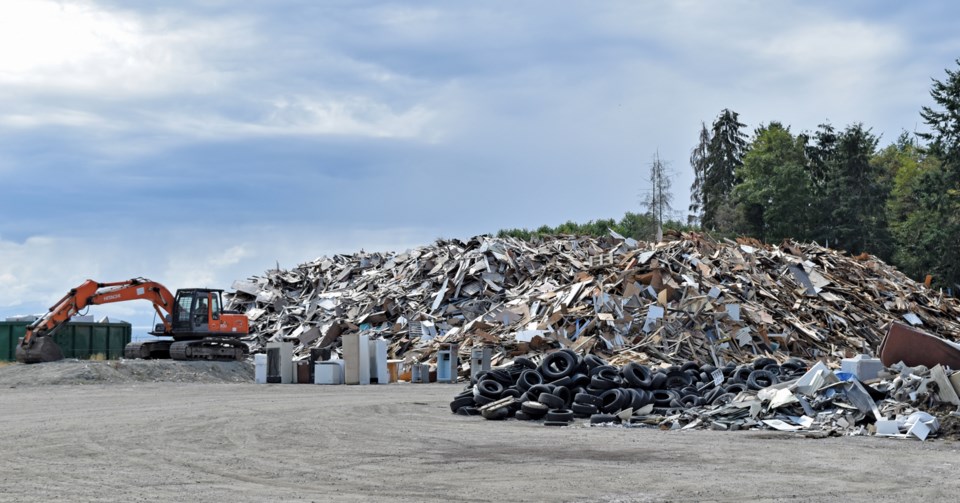So much lumber is accumulating at the Sechelt dump and Pender Harbour Transfer Station that they are running out of room, forcing the Sunshine Coast Regional District (SCRD) to find a quick, interim fix.
“The pile is as big as my house,” said Darnelda Siegers, director for Sechelt, during last Thursday’s SCRD corporate and administrative services meeting.
The SCRD’s contractor transported most of the wood to be landfilled off Coast, but that contract ended at the end of last January without a month-to-month extension. In May the SCRD board awarded the new contract, worth approximately $500,000, to Salish Soils.
But the new service won’t start until October because of changes Salish Soils is making to how the wood waste is handled. Rather than landfilling it, the company will grind it into wood chips and sell it to places such as Howe Sound Pulp and Paper.
The wood is being stockpiled at the Sunshine Coast landfill and Pender Harbour Transfer Station. Adding to the problem is a 21 per cent increase in the amount of wood waste accumulated this year.
By the time the contract is set to start, staff estimate 1,556 tonnes of wood will have accumulated – more than what’s in the contract with Salish Soils.
“Given the increasingly limited area available at both sites to stockpile wood, any such solution should be initiated sooner rather than later,” said the staff report presented to committee.
“Can’t we have a one-day blow out sale at the landfill?” asked Elphinstone director Donna McMahon during discussion. “I realize that there are safety issues associated with having public access to the wood pile but, honestly, I look at that and I think, that’s a resource.”
The question gave solid waste operations manager Arun Kumar another opportunity to illustrate the problem’s size.
“We did do a temporary haul to buy us some time and space,” said Kumar. That haul was the equivalent of 450 pickup truck loads, he said, “and it didn’t even put a dent in the pile.”
Clambering over the pile to choose items was an “extremely dangerous activity” and a liability, and traffic congestion is also becoming a problem “as people pick through the wood pile,” said Kumar, who ultimately advised against the idea of a lumber giveaway. McMahon also suggested partnering with organizations to divert the waste.
Mark Hiltz, director for West Howe Sound, asked if the wood could be ground up and used as cover for the landfill, but Kumar said “it wouldn’t be advantageous to grind up more material,” since they already have a large stockpile of ground up wood.
Area A director Leonard Lee suggested that the SCRD pay to grind the material and ship it to Salish Soils, but according to Kumar, the current sorting process the landfill uses doesn’t result in high enough quality material to be sold. “At the end of the day, if we were to use that process, we’d be left with the majority of ground up material,” Kumar said.
Directors voted unanimously to post a request for proposals for interim wood waste processing.



